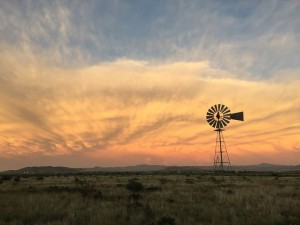It’s been a busy week around here! On Tuesday I spoke on surviving undercover video investigations at the High Plains Diary Conference in Lubbock. It was a great turn out and I really enjoyed the chance to visit with folks about this topic. Thanks to Ellen Jordan for the invitation. On Thursday, I was in Abilene to speak with the Master Marketer class. I appreciate Mark Welch inviting me to attend. To those of you joining from these events, welcome!
It has been a busy ag law week, including two victories for landowners in cases involving the Endangered Species Act.
* Court Will Not Reinstate Lesser Prairie Chicken Listing. You may recall from this prior blog post that a federal judge in the Western District of Texas issued a ruling removing the lesser prairie chicken from being listed as threatened under the Endangered Species Act. The US Fish and Wildlife Service requested that the judge amend that decision to allow the bird to remain listed while defects were cured by the agency, but this week, he refused to do so. It is likely the decision will be appealed to the 5th Circuit Court of Appeals. [Read article here.]
* DC Circuit Court Upholds USFWS Withdrawal of Sagebrush Lizard Listing. Another win for landowners regarding the Endangered Species Act this week happened when a federal appellate court found that the USFWS properly withdrew its proposed listing of the dunes sagebrush lizard after deciding that a voluntary conservation plan was sufficient to protect the species. After USFWS withdrew its potential listing, several environmental groups filed suit, arguing that the plan was not sufficient to protect the lizard. The court found that the protections were sufficient and the consideration by the USFWS was proper. [Read article here.]
* Condemnation Suits Begin Against Big Bend Landowners. The proposed Trans-Pecos pipeline has been extremely controversial, with many landowners in its path unhappy about a pipeline coming across their property. This week, condemnation suits were filed against some of these landowners by the pipeline company, Energy Transfer Services. So far, 12 suits have been filed in Presidio and Brewster Counties. The pipeline company relies upon its being deemed a “public utility” by the Texas Railroad Commission as the basis for having the power of eminent domain. [Read article here.]
* US Supreme Court Will Not Hear Appeal in Chesapeake Bay TMDL Case. The United States Supreme Court has refused to hear an appeal by the American Farm Bureau Federation in a case involving the EPA’s actions in setting a total maximum daily load (“TMDL”) of certain pollutants for the Chesapeake Bay. In light of this, the decision by the 3rd Circuit Court of Appeals will stand, which found that the EPA did not act improperly. To read a full recap of that appellate court decision, here is a blog post by my friends Paul and Ashley at the University of Maryland. [Read article here.]
* Aransas Project and River Authority Unite. You all may remember from this prior post a contentious lawsuit by the environmental group, The Aransas Project, against various entities, including the TCEQ, alleging that by issuing permits for water to be used out of the Guadalupe-Blanco River, a “take” of the endangered whooping crane occurred, violating the Endangered Species Act. The Fifth Circuit eventually found in favor of the TCEQ and dismissed the lawsuit. This week, however, the Aransas Project and the Guadalupe-Blanco River Authority announced an agreement over environmental flows needed for a whooping crane habitat. The collaboration of these two groups will apply for funding to conduct projects and research to protect the birds. [Read article here.]












